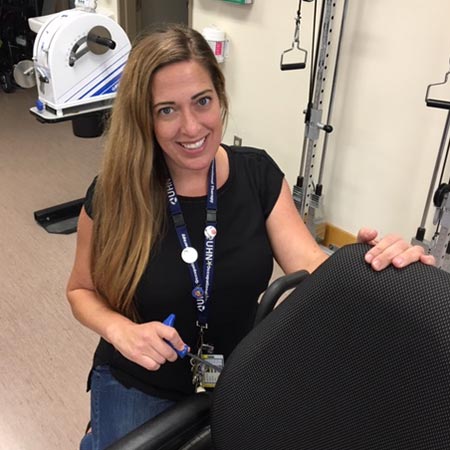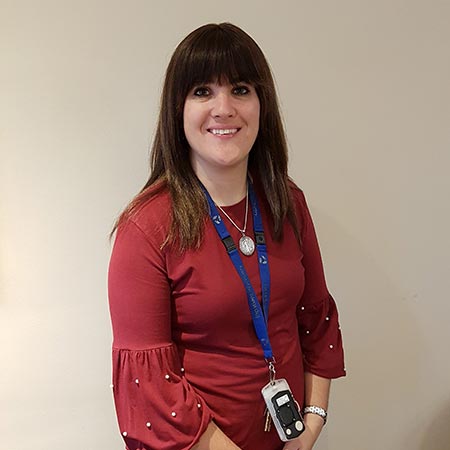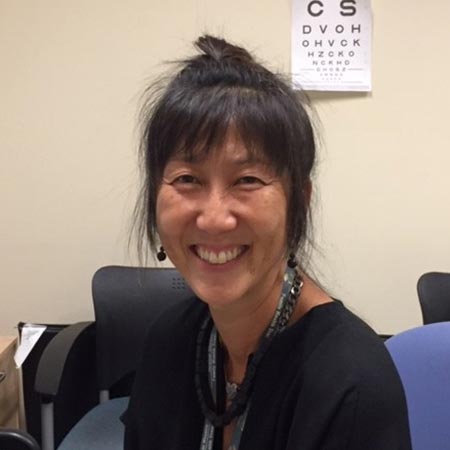Occupational therapists (OTs) can play a pivotal role in a patient's healthcare journey. In fact, it's through an OTs expertise that individuals optimize the way they carry out activities required in daily life.
And that's no small task.
That's why the focus of Alison Lake, UHN Discipline Head for Occupational Therapy and Therapeutic Recreation (TR), is on leading work that enables the development and implementation of best practice, education, research and mentorship for OTs and TRs across UHN.
"OTs work with people of all ages, in a vast array of settings across the healthcare spectrum," Alison says. "But diversity of the profession can sometimes lead to confusion regarding how or who can benefit from OT."
If you're wondering what an OT can do for you, read on to learn more about how they're impacting lives across UHN.
Susan Currie
Occupational therapist, Complex Continuing Care, Toronto Rehab
You may be surprised to learn that... OTs at Toronto Rehab's Bickle Centre are leaders in seating and mobility and are able to prescribe various wheelchairs, from manual to complex power-tilt chairs. We also problem solve through complex seating and wheelchair issues, to help facilitate independence and maximize quality of life, regardless of a patient's level of ability. It is very rewarding to see patients zipping around our gardens in the summertime, when our flowers in full bloom, with the means and freedom to live life to the fullest.
Patients would describe me as... a good listener, creative, full of fun and a great dancer. Each Christmas, I coordinate a dance troupe of allied health colleagues – we call ourselves Santa's Little Helpers – that choreographs and performs a routine at our patient holiday parties. We get rave reviews! While we have a lot of fun coming together socially, the main reason that we do it is for the smiles on patients' faces.
I know I've provided the best care when… patients feel comfortable enough to come to me with issues that may seem small or insignificant to others, but are important to them. To me, it shows that I've earned their trust and built a strong foundation for a patient-centred therapeutic relationship. From minor wheelchair fixes, to building a custom feeding splint, to pondering the meaning of life, as OTs we are here to help enable patients, no matter what the issue.

David Clark
Occupational therapist, Hand Therapy, Toronto Western Hospital
You may be surprised to learn that... while the bulk of the work in Hand Therapy involves physical approaches, like splinting or exercise prescription, I draw upon my psychosocial and cognitive rehab skills on a daily basis. Patients with acquired brain injuries, emotional trauma, or pre-existing cognitive impairments can have complex needs. Techniques such as motivational interviewing or mindfulness, or setting up environmental memory cues can help patients achieve their fullest recovery.
Patients would describe me as... a "MacGyver," because I'm always up for fixing, fiddling with, or modifying a device or a tool so that it works for them.
I know I've provided the best care when... patients start using their injured hands without thinking about it. It's when they feel like their hands belong to them again.
Lyndsey De Souza
Occupational therapist, Malignant Hematology (Leukemia and Allogeneic Stem Cell Transplant), Princess Margaret Cancer Centre
You may be surprised to learn that... OTs have a role in addressing psychosocial status. Many patients experience anxiety as a result of their cancer diagnosis. OTs can address this through relaxation therapy and teaching self management strategies, such as deep breathing.
Patients would describe me as... "truly special." I once had a patient's family member say this to me as we were saying goodbye, before they traveled home for end-of-life care. I will always remember this, because working in oncology can be difficult but at the same time very rewarding.
I know I've provided the best care when... patients come back to visit and tell us how well things are going at home, and how appreciative they are of the care they received.

Michal Goldreich
Occupational therapist, Eating Disorders Program, Toronto General Hospital
You may be surprised to learn that... OTs play a vital role in the assessment, treatment and discharge planning of individuals struggling with mental health issues. In the Eating Disorders Program, we focus on helping our patients gain symptom control, challenge distorted thoughts, learn new, and healthy coping strategies, all while working on building a life for themselves outside of their eating disorder. We use many treatment modalities such as Cognitive Behaviour Therapy, Dialectical Behavior Therapy, behaviour activation, supportive counselling, and psychotherapy.
Patients would describe me as... caring, compassionate, understanding and supportive. I am patient-centered in my approach, helping my patients set and work toward their self-identified, meaningful goals, all while encouraging, educating and validating in a non-judgmental and open-minded fashion. I am also known to have great necklaces.
I know I've provided the best care when... patients leave our program having achieved their self-identified goals; when patients have reintegrated back into their life outside of their eating disorder; when they leave committed to recovery, to continued growth, and feel like they are in a healthier place in their body, mind and spirit.
Jennifer Shin,
Occupational therapist, Toronto Western Family Health Team
You may be surprised to learn that... in my role as an OT on the Family Health Team I have the privilege of working as a generalist. Some of my roles include: working in patients' homes, as part of the Home Bound Care Program; providing comprehensive geriatric assessments for frail seniors; promoting community health education on falls prevention; co-leading a psychoeducation workshop on managing stress; providing executive function skills-training for individuals living with attention deficit hyperactivity disorder and post concussion; assisting with system navigation in a very complicated system; and behavior-activation and goal-setting with clients living with mental health issues.
Patients would describe me as... caring, respectful, thoughtful and easy to talk to.
I know I've provided the best care when… I ask patients, "how has coming to see me helped you in your day-to-day life?" and they are able to share one thing that they are taking away from our interaction, be it a mindfulness skill to better cope with stress, learning about a piece of equipment that might prevent a fall, or a community resource that might curb social isolation.

